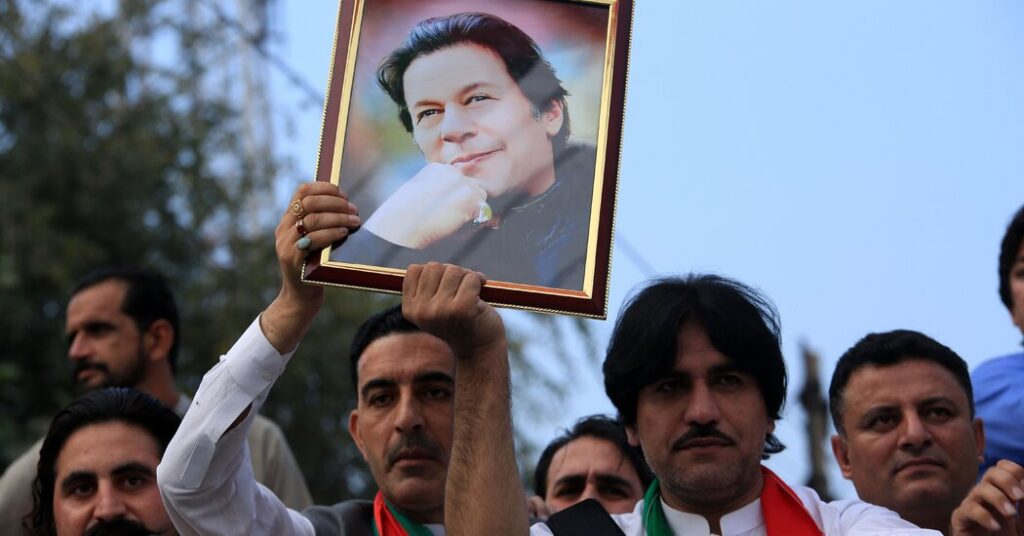After weeks of intense political maneuvering, Pakistan’s parliament has passed a series of constitutional amendments that will overhaul the country’s Supreme Court appointment process. Critics called it an effort to rein in the Supreme Court as it emerges as a political force in its own right and challenges Pakistan’s powerful military establishment.
The governing Pakistan Muslim League-Nawaz and other groups managed to muster the two-thirds majority needed to amend the constitution in a session that lasted until early Monday morning. Lawmakers from the ruling coalition said the amendments would give Pakistan’s political leaders an increased edge, in a fiery speech denouncing what they called judicial activism.
But the party of former prime minister Imran Khan, who is jailed on corruption charges, boycotted the vote, calling the amendments a blatant attempt to undermine judicial independence. The Supreme Court has repeatedly ruled against regime efforts to eliminate Khan and his party, Pakistan Tehreek-e-Insaf (PTI).
Analysts say the amendments are backed by military authorities and reflect the power struggles that have plagued Pakistan since Mr. Khan’s ouster in 2022.
The change would shift the process for appointing chief justices and other judges from a traditional seniority system to one that could be influenced by political interests.
The proposed amendment would ensure that judges seen as loyal to Mr Khan are removed from the race for the chief justice seat. Analysts say some independent judges who resisted the military’s heavy-handed tactics to dislodge Mr. Khan and his party will also be excluded from future nominations for chief justice.
“This is a dark day for democracy,” said Faisal Chaudhry, an Islamabad-based lawyer who is part of Mr Khan’s legal team. He said he responded to judicial overreach by restricting judicial independence.
For most of Pakistan’s history, the tribunal has largely aligned itself with the military, disqualifying the elected prime minister and dozens of other politicians who fell out of favor with generals. In 1979, the Supreme Court ordered the hanging of popular former prime minister Zulfikar Ali Bhutto.
Advocates for judicial reform said they would curb such interference.
“The new constitutional reforms will help end the palace conspiracy aimed at ousting the government and removing the prime minister,” Prime Minister Shehbaz Sharif told parliament.
Before the vote, Islamabad was abuzz with high drama and frenzied political activity. Akhtar Mengal, head of the nationalist Baluchistan People’s Party, said two of his party’s senators had been abducted and forced to vote on the amendment. PTI also claimed that several members were forced by military authorities to vote in favor of the changes.
Mr Sharif dismissed these concerns, saying the amendments signaled a “new dawn”.

